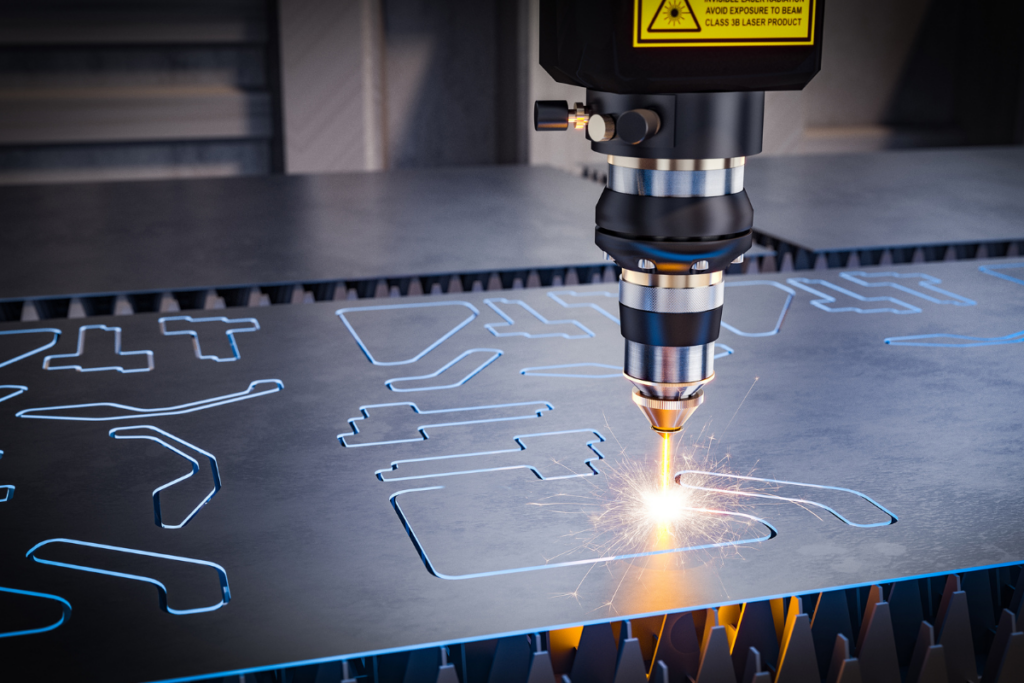The manufacturing industry is currently going through what’s been called the 4th Industrial Revolution, which, like steam power engines and assembly lines before it, is improving how we build things.
At the heart of this transformation is automation technology, which uses robots to fabricate products faster and optimize workplace processes, enabling goods to be delivered to customers more efficiently. It also allows manufacturers to redeploy workers to other areas of the business, as automated technology can perform specific tasks without manual intervention, reducing the risk of human error or injury.
Automation is changing our industry for the better – and there’s no going back, especially when you consider with all the benefits that automation offers both fabrication suppliers and their customers:
Increased Productivity
Simply put, automation allows manufacturers to be more productive. Robots can work around the clock, 7 days per week, 365 days per year, without stopping for breaks. Production may be delayed slightly to replace worn tools or for routine machine maintenance, but otherwise, production keeps going efficiently.
Having robots you can switch on or off in tight job markets or periods of inconsistent custom demand is also a huge money-saving advantage for manufacturers. Robots can also work nonstop during peak periods, even performing multiple tasks simultaneously, eliminating the risks of production delays due to worker burnout.
Better Control Over Consistency
Our industry was built on the hard work of human fabricators, workers, machinists, and metalworkers. But let’s be honest – human workers tend to make mistakes from time to time, affecting the quality and consistency of your products. Automated systems have little tolerance for error, creating the same weld, drilling the same hole, and shaping the same workpiece with reliable, consistent accuracy, regardless of whether you need a dozen or one million of the same component. This cuts down on wasted material from inaccurate cuts.
However, this doesn’t mean that automation displaces humans; instead, companies can reallocate their workers to do things that robots can’t, such as solving problems or building relationships. In other words, automation empowers humans to do what they do best by using robots to do the more repetitive work.
Improved Decision-Making
We’re not suggesting robots make decisions for manufacturers – that should only happen in the movies. In the real world, automation technology provides business leaders with accurate, real-time data that supports strategic decision-making.
Examples of the data automated systems provide include the number of parts manufactured in a given time frame, when a task was finished, and even predictions of when a cutting tool may need to be replaced. This information provides management deep insights into how their workflows are performing so improvements can be planned and executed with confidence.
A More Reliable Supply Chain
Several years ago, many companies believed the manufacturing supply chain was solid and reliable. Then, in 2020, we learned how vulnerable it truly was, as production facilities were compelled to cut production or close altogether due to public health guidelines. If someone in the facility got sick, entire shifts were sent home to isolate for several days. The impact on production and the company’s bottom line was enormous.
Robots, of course, don’t get sick. They help manufacturers protect the supply chain by working through virtually any circumstance, including labour shortages or public health concerns.
Read More: How Supply Chain Challenges Can Affect The Metalworking Industry
Enhanced Workplace Health And Safety
There’s a reason why we require our production teams to wear eye and ear protection, long sleeves, work gloves, and in some cases welding masks and double eye protection: metalworking is dangerous work. Sudden falls, accidents with the equipment, and repetitive stress injuries from performing the same tasks repeatedly are among the health and safety risks in the production workspace. Aside from the human toll, mishaps can also slow or halt production temporarily.
Robots reduce the chances of workplace injury and protect worker health by taking on much of the hazardous work. Additionally, they won’t get bored by repetitive work as many humans might, giving workers a chance to take on more creative duties that keep them engaged.
Read More: 7 Important Safety Practices In Machining And Fabrication
Arrow Off-Road: Embracing Automation To Improve Our Customers’ Business
Since 1923, our team has embraced new technology as it develops to help improve product quality, streamline processes, and cut costs for our customers. Technology has also helped our customers get their products to market sooner, helping them stay competitive in a tightening market.
With a partner like Arrow Off-Road in your corner, you’re always assured of a tech-driven metal fabrication solution that meets your needs, delivered with a level of customer service unparalleled in our industry.
Get A Project Quote From Arrow Off-Road For Your Next Design And Fabrication Project
Partner with Arrow Off-Road for precise machining, welding, and fabrication solutions customized to your requirements and application. Quickly request a quote for your next project to experience the Arrow difference in quality, precision, and service for yourself.
